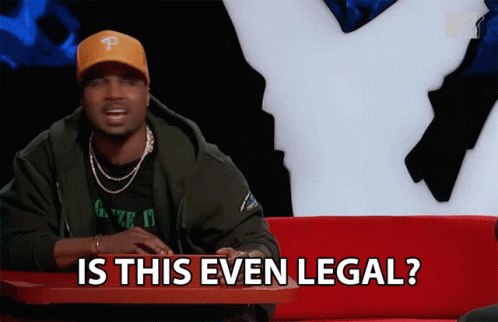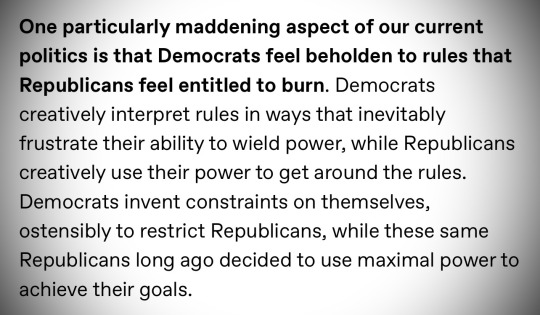#pragmatism
Text
You know what I realize that people underestimate with Pride & Prejudice is the strategic importance of Jane.
Because like, I recently saw Charlotte and Elizabeth contrasted as the former being pragmatic and the latter holding out for a love match, because she's younger and prettier and thinks she can afford it, and that is very much not what's happening.
The Charlotte take is correct, but the Elizabeth is all wrong. Lizzie doesn't insist on a love match. That's serendipitous and rather unexpected. She wants, exactly as Mr. Bennet says, someone she can respect. Contempt won't do. Mr. Bennet puts it in weirdly sexist terms like he's trying to avoid acknowledging what he did to himself by marrying a self-absorbed idiot, but it's still true. That's what Elizabeth is shooting for: a marriage that won't make her unhappy.
She's grown up watching how miserable her parents make one another; she's not willing to sign up for a lifetime of being bitter and lonely in her own home.
I think she is very aware, in refusing Mr. Collins, that it's reasonably unlikely that anyone she actually respects is going to want her, with her few accomplishments and her lack of property. That she is turning down security and the chance keep the house she grew up in, and all she gets in return may be spinsterhood.
But, crucially, she has absolute faith in Jane.
The bit about teaching Jane's daughters to embroider badly? That's a joke, but it's also a serious potential life plan. Jane is the best creature in the world, and a beauty; there's no chance at all she won't get married to someone worthwhile.
(Bingley mucks this up by breaking Jane's heart, but her prospects remain reasonable if their mother would lay off!)
And if Elizabeth can't replicate that feat, then there's also no doubt in her mind that Jane will let her live in her house as a dependent as long as she likes, and never let it be made shameful or awful to be that impoverished spinster aunt. It will be okay never to be married at all, because she has her sister, whom she trusts absolutely to succeed and to protect her.
And if something eventually happens to Jane's family and they can't keep her anymore, she can throw herself upon the mercy of the Gardeners, who have money and like her very much, and are likewise good people. She has a support network--not a perfect or impregnable one, but it exists. It gives her realistic options.
Spinsterhood was a very dangerous choice; there are reasons you would go to considerable lengths not to risk it.
But Elizabeth has Jane, and her pride, and an understanding of what marrying someone who will make you miserable costs.
That's part of the thesis of the book, I would say! Recurring Austen thought. How important it is not to marry someone who will make you, specifically, unhappy.
She would rather be a dependent of people she likes and trusts than of someone she doesn't, even if the latter is formally considered more secure; she would rather live in a happy, reasonable household as an extra than be the mistress of her own home, but that home is full of Mr. Collins and her mother.
This is a calculation she's making consciously! She's not counting on a better marriage coming along. She just feels the most likely bad outcome from refusing Mr. Collins is still much better than the certain outcome of accepting him. Which is being stuck with Mr. Collins forever.
Elizabeth is also being pragmatic. Austen also endorses her choice, for the person she is and the concerns she has. She's just picking different trade-offs than Charlotte.
Elizabeth's flaw is not in her own priorities; she doesn't make a reckless choice and get lucky. But in being unable to accept that Charlotte's are different, and it doesn't mean there's anything wrong with Charlotte.
Because realistically, when your marriage is your whole family and career forever, and you only get to pick the ones that offer themselves to you, when you are legally bound to the status of dependent, you're always going to be making some trade-offs.
😂 Even the unrealistically ideal dream scenario of wealthy handsome clever ethical Mr. Darcy still asks you to undergo personal growth, accommodate someone else's communication style, and eat a little crow.
#hoc est meum#pride and prejudice#elizabeth bennet#charlotte lucas#meta#charlotte is a much less sociable person than lizzie#so avoiding her husband most of the time and not seeking out his company is more viable for her!#she also has more patience for people being wrong#partly i think because she kinds checks out and lets them get on with it which lizzie isn't too great at even with her mother#people have different needs like that's a thing okay#marriage#spinsterhood#pragmatism#like if elizabeth had to listen to collins talk for a few months straight she would be nearly insane with rage#he's not just a low-quality man he's a man designed to be the worst for her specifically#also note that because jane's marriage is elizabeth's fallback plan#darcy screwed her over personally by interfering between her and bingley#she ofc does not bring this up how could she#but it's intensifying the anger during the hunsford rejection i think
15K notes
·
View notes
Quote
When young, one is confident to be able to build palaces for mankind, but when the time comes one has one's hands full just to be able to remove their trash.
Johann Wolfgang von Goethe, "Letter to Johann Kaspar Lavatar (6 March 1780)"
#philosophy#quotes#Johann Wolfgang von Goethe#Letter to Johann Kaspar Lavatar#ideals#optimism#pragmatism#progress#humanity
217 notes
·
View notes
Text
Victor stared helplessly at the city of lights.
"Why us?" he said. "Why is it happening to us?"
"Everything has to happen to someone," said Ginger.
Terry Pratchett, Moving Pictures
#victor tugelbend#ginger withel#moving pictures#discworld#terry pratchett#fate#resigned#causality#helpless#why#chance#pragmatism#why me#everything has to happen to someone
145 notes
·
View notes
Text


Truly impressive what Minnesota accomplished with only a one seat majority

“…in addition to having a one-vote margin, this was not a radical left-wing legislature! There are plenty of moderate Dems here.
But the moderates, unlike (centrist) Dems elsewhere, still wanted to get stuff done and saw progressives as partners in making that happen.”
Rather than looking at the November numbers result and imposing some kind of self-limiting narrative about the scope of their mandate, MN Dems looked at their priorities and said "How much of the list can we get done?"
Turns out the answer was, "Almost everything."


Republicans did not worry about appeasing the sensibilities of Democratic voters when they rammed through Trump’s unqualified Supreme Court Justices, and then gutted Roe v. Wade.

THE MORAL OF THE STORY IS, whenever Dems have political power, instead of performatively agonizing about “reaching across the aisle” to compromise with Fascistic Republicans, or pontificating over & worrying about what Republican voters might think, they need to focus on one thing and one thing only: accomplishing ALL the good they can while they still can. Like Minnesota just did.
Dems need to be bold, and press through their base’s policies whenever they have the opportunity, not finger wag and tell us why the things we want are impossible and won’t ever happen.
“Pragmatically” “triangulating” and waiting for the “right” time, or waiting for a “better” time to do what is right only helps Republicans buy more time to entrench.
Time is a luxury that most poor and marginalized people simply cannot afford. Democratic politicians need to understand what MLKjr meant when he spoke of being wonderfully maladjusted, and the fierce urgency of now! and why he scornfully viewed moderate (centrist) whites as an even greater threat to progress than the KKK.
Minnesota is a solidly midwestern state. Hopefully if nothing else, Minnesota’s impressive list of recent accomplishments will belie the common DNC political “wisdom” that only conservatism-lite will work in middle America.
279 notes
·
View notes
Text
Just to get something clear, I am an anarchist and I stand by my beliefs, but I am also a pragmatists. I might not like the system and want it gone, but you work with what got and not what you don't have. I will talk with you theory and ethics all you want, but when it comes to it, your philosophy is less important to me then actually doing the activism.
Be pragmatic in your activism, dream all you want, but nothing is gonna happen if you don't work with what you got.
24 notes
·
View notes
Text
Essential Reading for Me
How to Make Our Ideas Clear by Charles Sanders Peirce - This is essentially the first work of philosophical pragmatism and goes into how an idea can be clear and meaningful as well as what can be meant by reality. While I think Peirce undervalues symbolic thought somewhat and is a bit overly confident in our ability to know, it is a great work on the nature of what a clear idea is as opposed to a vague or meaningless idea and does a great job cutting through the needless navel-gazing so unfortunately prominent in intellectual discource
The Myth of Sisyphus by Albert Camus - The seminal short work on absurdism. Gives a brilliant summary of how the absurd comes to be. While I disagree with his idea on how to live given the absurd, I find his summary of the absurd brilliant
Ethics by Baruch Spinoza - This book serves as a brilliant argument for a pantheistic worldview and a deconstruction of dualism and a takedown of the idea of free will as well as serving as an interesting interpretation of human psychology. While Spinoza's extreme rationalism often gets the better of him, in my opinion, and a lot of the second half of the book is based on a barely founded assumption of a common human nature, and Spinoza's morality can lean a bit too heavily into asceticism in my opinion, its metaphysical analysis is an excellent conception of reality in my opinion, and it still has plenty of good ideas for living. It is overall a great read and guaranteed to shift your way of thinking about things, even if you don't agree with it.
The Cyborg Manifesto by Donna Haraway - An excellent text proposing a new myth of the cyborg that moves past old dualisms, nostalgias, and millennialisms. Also an excellent analysis of the society of control which, while dated in some places (being written pre-World-Wide-Web) is extremely prescient in others. Useful both as a critique and reconstruction of feminism and as a broader view of restructuring how we all think about ourselves.
Zeroes + Ones by Sadie Plant - An excellent text of cyberfeminist theory that deconstructs orthodoxies of our society and shows the complex fluidity of what we do often assume to be linear and simple. While sometimes a bit too fervently antihumanist, it is overall a great read that will change how you think about a lot of things related to life.
Capitalist Realism by Mark Fisher - An excellent deconstruction of late capitalist culture and its contradictions. While obviously some things have changed since it was written in the 2000s, I would argue that we are still trapped in capitalist realism despite what some idealists say - with the right being the main opposing force and the left mostly being either being glorified social democrats or ineffectual moralists - though the fact that the genuinely revolutionary left is regaining some degree of relevance, especially among the young, is a sign of potential improvement.
#spinoza#ethics#pantheism#charles sanders peirce#baruch spinoza#pragmatism#pragmaticism#how to make our ideas clear#philosophy#epistemology#metaphysics#camus#myth of sisyphus#absurdism#donna haraway#cyborg manifesto#cyberfeminism#sadie plant#mark fisher#capitalist realism#zeroes + ones
56 notes
·
View notes
Text
Theories of the Philosophy of Expression
The philosophy of expression explores the nature, significance, and implications of human expression in various forms, including language, art, music, and body language. It delves into questions about the origins of expression, its relationship to identity, culture, and society, and its role in human communication and understanding. Additionally, it examines ethical and aesthetic considerations surrounding expression, as well as the philosophical frameworks that underpin different modes of expression.
The philosophy of expression encompasses various theories and perspectives that seek to understand the nature and significance of human expression. Some prominent theories include:
Mimetic Theory: This theory, proposed by Plato and Aristotle, suggests that art and expression imitate or reflect reality. It emphasizes the role of art in representing the natural world and conveying universal truths.
Expressivism: Expressivism posits that expression, particularly in language and art, serves as a means for individuals to express their inner thoughts, emotions, and experiences. It emphasizes the subjective and personal aspect of expression, focusing on the individual's unique perspective.
Semiotics: Semiotics, developed by Ferdinand de Saussure and Charles Peirce, explores the study of signs and symbols and their interpretation. It examines how meaning is conveyed through linguistic and non-linguistic signs, highlighting the role of context and cultural conventions in interpretation.
Pragmatism: Pragmatist philosophers like John Dewey emphasize the practical consequences of expression. They argue that expression serves a functional purpose in communication and problem-solving, shaping social interactions and facilitating collective action.
Hermeneutics: Hermeneutics focuses on the interpretation of texts and cultural artifacts, including literary works, religious texts, and artistic expressions. It examines the process of understanding and meaning-making, considering the role of context, tradition, and the interpreter's perspective.
Aesthetic Theory: Aesthetic theories, developed by philosophers like Immanuel Kant and Arthur Schopenhauer, explore the nature of beauty and artistic experience. They examine how aesthetic judgments are formed, the criteria for evaluating art, and the relationship between art and morality.
Phenomenology: Phenomenological approaches, as developed by Edmund Husserl and Maurice Merleau-Ponty, explore the lived experience of expression. They focus on the first-person perspective and the embodied nature of expression, examining how individuals perceive, interpret, and engage with the world through expression.
These theories offer diverse insights into the complexities of human expression, highlighting its multifaceted nature and its significance in shaping individual and collective experiences.
#philosophy#epistemology#knowledge#learning#chatgpt#education#ontology#metaphysics#psychology#Philosophy of language#Philosophy of art#Philosophy of music#Body language#Communication#Identity#Culture#Aesthetics#Ethics#Human experience#Mimetic theory#Expressivism#Semiotics#Pragmatism#Hermeneutics#Aesthetic theory#Phenomenology#Interpretation#Meaning-making
8 notes
·
View notes
Text
On changing minds in pragmatic ways
I have noticed that when I'm in conversation with centrists or even mild conservatives, they are a lot more likely to consider my ideas if I say I've read about them in an article from a reputable magazine, think tank or news source like the economist or the bbc for example. They will very rarely ever follow up on it trust me.
Most regular people in society irl are conditioned to adhere to vertical morality, which basically means that for them, right and wrong is determined by what authority figures tell them, mainly because they don't want to have to do too much hard and uncomfortable thinking for themselves, and they don't trust their own judgement. From my observation and personal experience at least.
Feel free to use this trick in service of the good fight of winning over hearts and minds further to the left.
#hopepunk#hopecore#solarpunk#peaceful revolution#greenhorizon#anti capitalism#anti fascism#climate change solutions#pragmatism#naturecore#forestcore#politics#post scarcity
7 notes
·
View notes
Text
Empathy's resonance
I love that the chapter titled "Resonance" is all about how Genos with his unfaltering empathy and selflessness, his care for other people and coming to Tatsumaki's rescue, allowed Tatsumaki to remember an important memory of why she's doing this in the first place.

Because he directly proved Blast wrong with his actions; there are people out there who care and are unselfishly willing to come to her aid and who are not as pragmatic as Blast. Including Tatsumaki's younger sister.

It is important to note that not everyone can be saved or perhaps even shouldn't when the cost is too high, but one should at least try their best if it costs them nothing to show empathy. A humane approach.
Blast's advice comes from someone who has been emotionally wounded by his incapability of saving people and being betrayed when he expected someone to have his back and they did not and one of them is the Ninja village leader. To protect his family, he too would do anything in his power. There is time and place to take a pragmatic approach, like when Blast chose to try and portal people out first and prioritize them and he's not unempathetic.
Why is this important?

Blast, in all his pragmaticity, could perhaps still have saved Genos from this fate. He had lighting fast reflexes and decision making ability when he chose to gateway Saitama and Garou into the stratosphere. He could have reacted faster and tried to do anything at all. He was able to defend against Garou's best tricks, so he was not in danger either from counterattack. It cost him nothing to try.

But he opted not to try, because he thought Genos was already beyond saving when Garou pierced through him.
And he let Garou maul him to this state and enough time had passed that Bang had already fallen down and radioactive rain started to fall. And left Genos' body lie there, so Saitama saw it and flipped out.
(Note I'm not absolving Saitama of responsibility in this situation)
Whether he thought Genos was already dead when he got pierced, or if he logically knew that he could not have made Garou relinquish his hold on Genos's head, like the fight before proved to him that he would hold strong despite being portaled around...none of that ultimately matters.
Sometimes all you need...is a distraction to play for time.
To save a life.

And unlike Mumen, he has plenty skill and power to back it up too.
It was this empathy and selfless action from Mumen that allowed Genos to live to see another day, when he attacked Sea king unselfishly to protect the civilians. Mumen did not have the power and he could have died while doing this and he almost did. Showing this empathy could have cost him everything. Mumen has true sense of justice.
It was the pragmatic actions of Blast that ultimately, made Genos choice to fight against Garou, to play for time so Saitama could get back to fight since he had seen Saitama having engaged Garou before, null and void. And he died for it so his valiant effort was in vain.
Blast's conscience must weight a fair bit. An old soul, just like Saitama.
But in some cases, pragmatism justifies unscrupulousness, amoralism and a policy of achieving the desired goals in any way.
Never justify not being empathetic or selfless. Being empathetic can still save lives, sometimes even those thought to be beyond saving. There is time and place for pragmatism, but the cost of empathy and selflessness is not it.
--
(Genos getting into a lot of trouble for being empathic aint he. His care and actions are directly changing the world he lives in and people's lives in it.)
(Bonus points for Metal Bat and Garou resonating in the same way)
97 notes
·
View notes
Text
See things for what they are. Not for what you want them to be.
#perspective#mindfulness#objectivity#reality#honesty#truth#introspection#reflection#pragmatism#discernment
14 notes
·
View notes
Quote
In order merely to preserve our existence we have to strain mind and body to the utmost: nay more, we have to think of the surrounding world exclusively with a view to gaining a livelihood from it. There is no time to think about truth! This is why positivism was invented, with its theory of natural development. Really, everything we see is mysterious and incomprehensible.
Lev Shestov, All Things Are Possible
#philosophy#quotes#Lev Shestov#All Things Are Possible#pragmatism#practicality#instrumentalism#positivism#mystery#mysticism
113 notes
·
View notes
Text
"We are here, and this is now." Constable Visit, a strict believer in the Omnian religion, occasionally quoted from their holy book. Vimes understood it to mean, in less exalted copperspeak, that you have to do the job that is in front of you.
I am here, Vimes thought, and this is then.
Terry Pratchett, Night Watch
#sam vimes#samuel vimes#visit the infidel with explanatory pamphlets#night watch#discworld#terry pratchett#time travel#proverb#copperspeak#wisdom#religion#omnians#pragmatism#we are here#do the thing
270 notes
·
View notes
Text
There is something that we need to be clear about in regards to elections, wherever they may be held.
You are not going to get a viable leadership candidate who refuses to engage in international power politics and empire building.
There are a lot of reasons for this, but I am not going to bother listing them because the level of detail needed to really explain even one of them is too much for a tumblr post. But I will give the shortest explanation that I can which will hopefully be instructive despite containing almost no information.
Even the most powerful nations in the world depend on good relations with other states for one reason or another. It is impossible to establish a bastion of ideological purity without putting out of joint the noses of your supposed allies.
We can complain all we like about the faults in our viable candidates. But the reality of politics is that you have to choose the enemy you can most live with, because your friend can't do the job.
10 notes
·
View notes
Quote
The greatest weapon against stress is our ability to choose one thought over another.
William James
#william james#quotes#life#wisdom#philosophy#psychology#stress#choice#books#writing#writer#pragmatism
14 notes
·
View notes
Note
Could modern Progressivism be seen as a form of Unitarianism or Transcendentalism? Or are they better thought of as precursors to it?
To be honest, I don't see much of a connection. Unitarianism had an influence on the development of Progressivism at the turn of the 20th century, but not as much as Congregationalism in my opinion. As for Transcendentalism, that philosophy was pretty diametrically opposed to Progressivism in terms of orientation towards society and politics and economics. When it comes to modern Progressivism, the only conneciton I can see is that Unitarian denominations tend to be pretty left-leaning in their politics.
If you're looking for a school of philosophy that really influenced the development of Progressivism, though, you should be looking to Pragmatism. That movement had a huge impact on Progressivism, especially since a lot of the major philosophers in it (like John Dewey) were also active within the Progressive movement.
9 notes
·
View notes
Text
What works is what survives.
from The Omnivore's Dilemma by Michael Pollan
#survival#the omnivore's dilemma#michael pollan#big organic#organic#agriculture#pragmatism#darwinism#natural selection#evolution#farming#food
7 notes
·
View notes